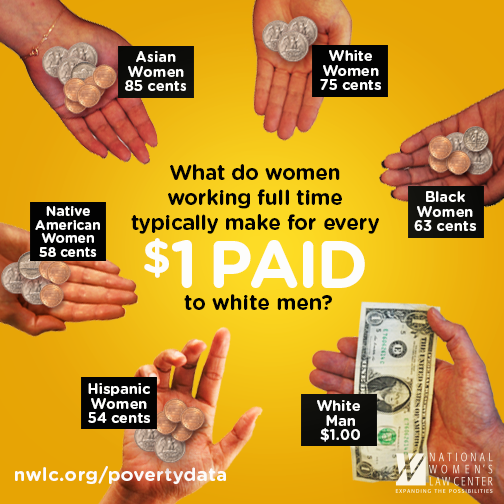Fired for Fighting Racism: NWLC Leads Amicus Brief in Support of Employee at Religious School

Victory: On June 7, 2022, the 10th Circuit denied Faith Christian Academy’s appeal, allowing Gregory Tucker’s claim that he was discriminated against under Title VII to proceed. Mr. Tucker was fired after he organized an assembly to address ongoing racist incidents at the school. The 10th Circuit dismissed the employer’s appeal, holding that the ministerial exception is properly understood as an affirmative defense and cannot be used to bar employees from bringing suit altogether. The court further underscored that whether an employee should be considered a “minister” and denied civil rights workplace protections requires a “fact-intensive inquiry.” The majority decision supports the arguments made in NWLC’s amicus brief that courts must undertake a serious analysis before employees are deemed ministers. Thus, employers should not be able to rely solely on formulaic paperwork or handbooks to classify employees as ministers and thereby deny their critical workplace civil rights protections.
***
In January 2021, NWLC, alongside our law firm partner Quinn Emanuel Urquhart & Sullivan, and 37 other organizations, filed an amicus brief in the 10th Circuit, making clear that religious employers cannot unilaterally strip workers of their civil rights by giving them a nominally religious title, without any regard to whether their job involves religious duties.
Gregory Tucker worked as a teacher, and then as director of student life at Faith Christian Academy (FCA) for around 14 years. He regularly spoke out about his belief that racism was wrong, and in 2016, he used his personal social media platforms to express opposition to the racism he saw in the discourse around the elections. Around the same time, students at the school began targeting Mr. Tucker using racist slurs to describe him, in part because he had an adopted Black daughter. The students also targeted Black and Latinx students at the school, dressing in KKK hoods and holding mock executions of students of color, promoting Naziism in the classroom, and bullying students who tried to speak out.
In an attempt to stop this hatred, Tucker organized an anti-racism assembly for the school. After the assembly, a group of parents complained to the school administration, claiming their children—including those who had openly expressed neo-Nazi sympathies—were “harmed” by the assembly. FCA blamed Tucker, demoted him, and fired him soon after.
When Tucker filed a civil rights lawsuit against FCA—because it is illegal to fire your employees in retaliation for opposing racial discrimination—the school claimed that his suit was barred because he was a “minister.” Fortunately, the district court did not agree and said that his civil rights claims could go forward. But now the school is appealing that to the 10th Circuit.
Does this move by religious employers sound familiar? That’s because just last year, the Supreme Court decided a case on the ministerial exception. In that case, religious schools fired one teacher because of her age and another teacher because she needed time off related to her cancer treatment. The Supreme Court held that those teachers were “ministers” because they had several religion-related duties at the school. That means they lost their workplace civil rights protections. Here, FCA fired Tucker after he spoke out against racial harassment at the school and is now saying he is a minister to avoid taking responsibility for this discrimination and retaliation. NWLC filed an amicus brief in this case because Tucker, and others who oppose racial harassment and then get fired for it, deserve justice.
In order to strip Tucker of his civil rights, FCA is trying to use easy-to-manipulate documents, like hiring paperwork and employee guidebooks, to claim that all of their employees are ministers, including janitors and science teachers, because for example, they are supposed to present subjects like math from a “Christian perspective.” If the 10th Circuit lets FCA classify all of their employees as ministers, hundreds of thousands of teachers at religious schools across the country, and even more non-teacher employees at those schools, may lose their workplace civil rights and other workplace rights including to labor law overtime and other protections.
This is part of a larger movement, led by the Trump administration, to allow the use of religious objections to overtake the compelling interests of addressing and preventing discrimination.
NWLC has been a leader in the fight against the misuse of religion to harm workers and justify discrimination. We opposed EEOC guidance and Department of Labor rules that would expand the ability of employers to use religion to discriminate. This is also a moment where employers should be encouraging trainings regarding anti-racism as well as systemic racism, white privilege, and implicit bias. In cases of offensive and severe racial harassment, like the vitriol present at FCA, employers and schools should be taking serious efforts to address such harms and to educate students of the risks that can come to all of us if such behavior is allowed to go unchecked. We cannot allow individuals who call out racism to be punished by employers who cite a phony “religious objection” to anti-racism assemblies, or to be deprived of their civil rights by superficial titles.
NWLC submits our brief in solidarity with, and with gratitude to, Mr. Tucker, his counsel at Americans United for Separation of Church and State, and all those who take the time, energy, and courage to fight back against racial harassment in their schools and workplaces.






